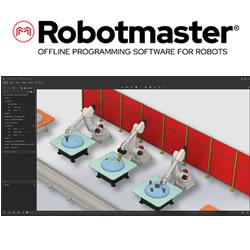Relay Robotics Introduces New Hospital Delivery Robot, RelayRx to Address Nursing Shortage
Relay Robotics Introduces New Hospital Delivery Robot, RelayRx to Address Nursing Shortage RelayRx combines larger payload to deliver wide variety of hospital items (e.g. lab specimens, medications, equipment) plus “chain of custody” security and enhanced navigation for safe travel in busy hospital spaces.
Relay Robotics, Inc., a leading manufacturer of autonomous service robots to the healthcare industry, introduced its newest hospital robot, RelayRx, today at the American Society of Health-System Pharmacists (ASHP) Summer Meetings & Exhibition. Relay delivery robots have been deployed at 15+ hospital systems over the past five years. RelayRx delivers twice the capacity (10 gallons, 41 liters) of earlier models, with an expanded 8" touchscreen.
This announcement of RelayRx comes at a key economic time in healthcare. Over 100,000 registered nurses have left the workforce in the last two years according to the American Hospital Association. Moreover, a recent PBS NewsHour story reported that in the next two years, there will be a shortage of 450,000 bedside nurses in the U.S.
"RelayRx for hospitals brings urgent relief to nurses, pharmacy techs, and hospital staff," said Michael O'Donnell, Chairman and CEO, Relay Robotics. "They are our heroes today and we need to provide them all the tools that technology and innovation provide so they can spend more time with patients."
Relay robots are used daily at leading hospitals worldwide, including Beth Israel Deaconess Medical Center, CHU Sainte-Justine, El Camino Hospital, Hutchinson Health, MedStar Georgetown University Hospital, University of California, San Diego and Yale NewHaven Health Lawrence + Memorial. Hospitals use Relay robots to make deliveries from every department including pharmacies and labs to every corner of their facility, quickly and efficiently. RelayRx is effectively another "transport system" for these hospitals.
"Before our Relay robot, we had to stop and make hard decisions. Do I transport these specimens now to the lab myself, or do I help this patient? I have three patients in line, but there are three stat samples. Which do I do first? Now it's very simple, we just send our robot," said Jamie Schmidt, Lab Supervisor, Hutchinson Health, Hutchinson, MN.
Relay and its technology leaders have been building robots for 10+ years and pioneered human friendly robot design and software functionality, including elevator integration.
"We're proud of the technology and design advancements we've made in RelayRx to expand the delivery capacity and better serve hospital staff and their use cases like lab deliveries and chemotherapy from the pharmacy to the infusion center," said Steve Cousins, Relay Robotics Founder & Chief Technology Officer.
RelayRx rides elevators in hospitals autonomously by leveraging Relay's proprietary elevator technology to operate all major elevators including OTIS, Schindler, TK, Mitsubishi, KONE, and others. This enables RelayRx to navigate throughout an entire hospital, connecting departments like the pharmacy and blood bank with patient rooms with an average delivery time of seven minutes.
About Relay Robotics
Relay Robotics is a leading supplier of autonomous service robots that work with humans safely, securely, reliably, and contact-free. Relay's robots complement staff across hospitality, healthcare, and commercial real estate. They have completed more than 1,000,000 deliveries worldwide and continue to make hundreds of deliveries a day around the globe.
For more information about Relay Robotics, visit relayrobotics.com.
Featured Product

